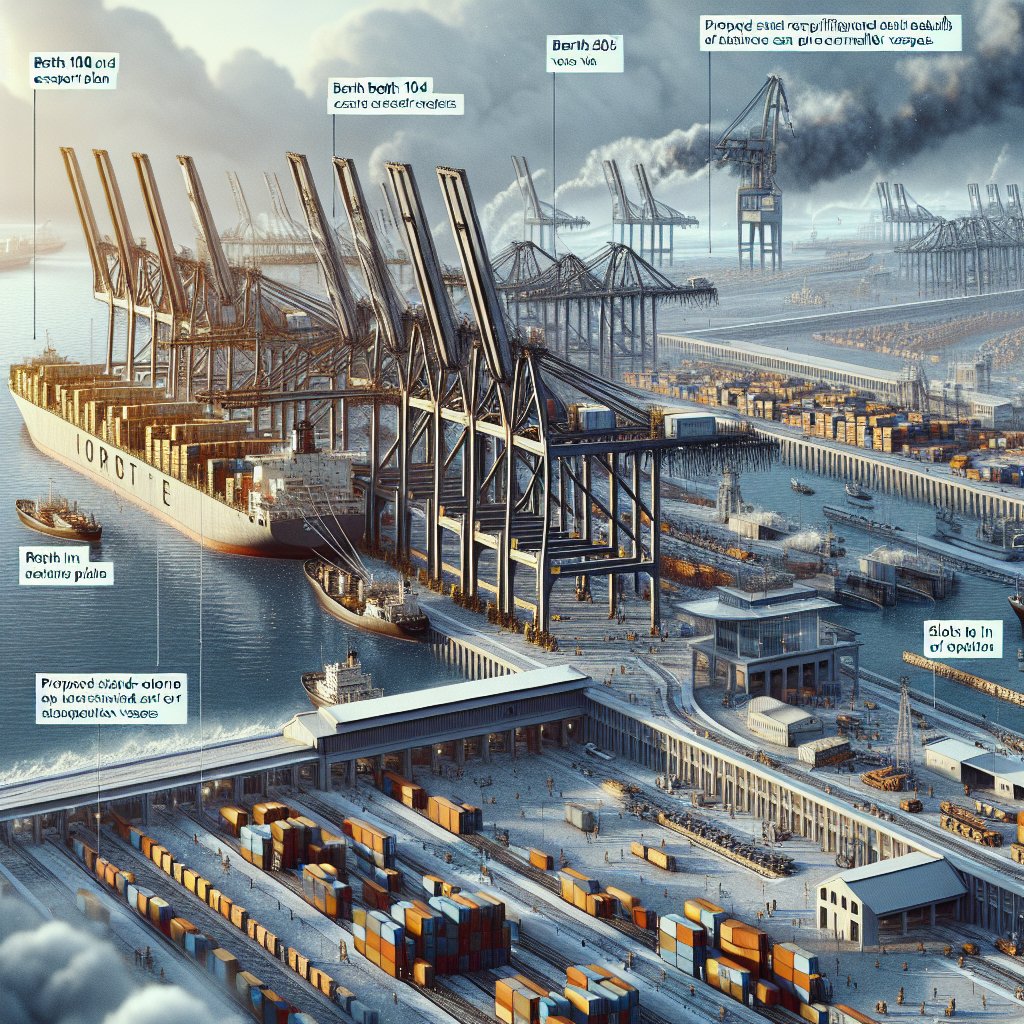Image created by AI
Transnet Pauses Port of Saldanha Iron Ore Expansion Amid Viability Concerns
Transnet National Port Authority (TNPA), South Africa's pivotal port management authority, has recently announced a strategic standstill on its previously proposed expansion project at the Port of Saldanha. The initial plan aimed to augment the facility's iron ore export capacity with an additional stand-alone berthing structure, projected to enhance annual export volumes by 7 million tons. This decision to suspend the expansion reflects TNPA's scrupulous reassessment of the project's economic feasibility amid various operational and market challenges.
The Port of Saldanha, located in the Western Cape and recognized as Africa's largest iron ore export terminal, is currently operating at its peak, with an impressive throughput of 60 million tons per year. Despite its formidable performance, accounting for 96% of Africa's iron ore export, a noticeable decline in exported volumes has raised considerations over immediate expansion needs. Notably, Kumba Iron Ore, a major supplier, disclosed a substantial 19% drop in its ore transport to the port during the last quarter of 2023, as impacted by equipment breakdowns and adverse climatic events.
The related pre-feasibility study, conducted by Transnet, highlighted the fiscal challenges tied to this augmentation, casting doubt on the new berth 100 construction's economic merit. Captain Vernal Jones, the Port Manager for the Port of Saldanha along with his position as the acting managing executive for the Western Region Ports, elucidated the situation during a media briefing. The discourse followed a substantive stakeholder engagement session, in which TNPA emphasized their commitment to enhancing operational efficiency and progressing other critical infrastructure projects.
A notable strategy pivot is TNPA's focus on the reconfiguration of berth 104 at the oil jetty, which will allow the port to accommodate more diverse and smaller vessels, expanding its capability in handling various 'white fuels.' These plans include operationalizing an LPG berth, in close collaboration with the terminal operator, Strategic Fuel Fund, and Nersa, the National Energy Regulator of South Africa.
Moreover, TNPA disclosed potential developments that involve extending the Multi-Purpose Terminal (MPT) and constructing berth 205 to cater to a broader spectrum of maritime traffic, specifically vessels extending up to 200 meters. This project, born out of Operation Phakisa's Initiative Two, aims to bolster the infrastructure for oil rig repairs and associated industries, promising to match present demands and scalability for future ventures.
The trajectory taken by TNPA underscores a strategic shift focusing on the recalibration of existing facilities to diversify services and optimize performance, rather than the aggressive expansion of iron ore export capacity at this juncture. As the responsible custodians of South Africa's port infrastructure, TNPA's evidence-based decision-making paves the way for sustainable development within the maritime sector—an approach that resonates with foresight in times of economic recalibration.










